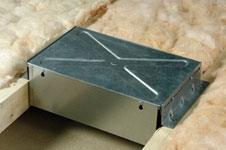New measures requiring energy firms to spend £910m on energy efficiency do not go far enough, government is told
Doubts have been cast on the government's plans, unveiled this week, to insulate almost all homes in the UK by 2020.
Energy firms are to finance much of this work, having been told to spend £910m over the next three years to promote energy-efficiency measures.
Gordon Brown has said that 2 million homes a year will benefit from its measures over the next three years, but the insulation industry has questioned the practicality of this target.
The new £910m commitment comes on top of £2.8bn that energy firms already contribute to government home insulation programmes.
Some £350m of the money will be put into a new scheme, called the Community Energy Saving Programme, under which councils and voluntary groups will go house-to-house in the most deprived neighbourhoods offering help to reduce heating bills.
People aged over 70 or in receipt of state benefits will be able to claim free loft lagging and cavity wall insulation, with discounts of up to 50% available to the rest of the UK population.
However, the proposal has been ill received by a number of groups, including Friends of the Earth, which told the Daily Telegraph that it was inadequately funded and unambitious.
The National Housing Federation said that it did not go far enough. Helen Williams, assistant director, said: “The energy-efficiency programme is a good step forward, but the government has failed to take tough action to force the energy fat cats to do the right thing.
“It's the job of the energy companies to make lots of money, but it's the job of ministers to make sure they don't exploit the British public through blatant profiteering. At the moment they are clearly failing to do this.”
Gillian Charlesworth, RICS director of external affairs, described the move as a valuable first step but said that the government needs to go much further.
“The extra £910m that the energy companies are coming up with, whilst welcome, is still tiny compared to the scale of the problem - the UK housing stock is still amongst the least efficient in Europe,” she said.
In addition, the Good Homes Alliance (GHA) said that work to improve the thermal efficiency of homes with insulation has not been proven to reduce energy consumption.
Neil May, chairman of the GHA said: “Recent research into the government's Warm Front programme showed that, while illness was reduced by these measures, fuel consumption was not. This was partly because people chose increased comfort above financial savings, but may also have been because of installation issues.”
He said that measures would only be successful if backed up by information for homeowners on how buildings work and the impact of their own behaviour on energy consumption.




























3 Readers' comments